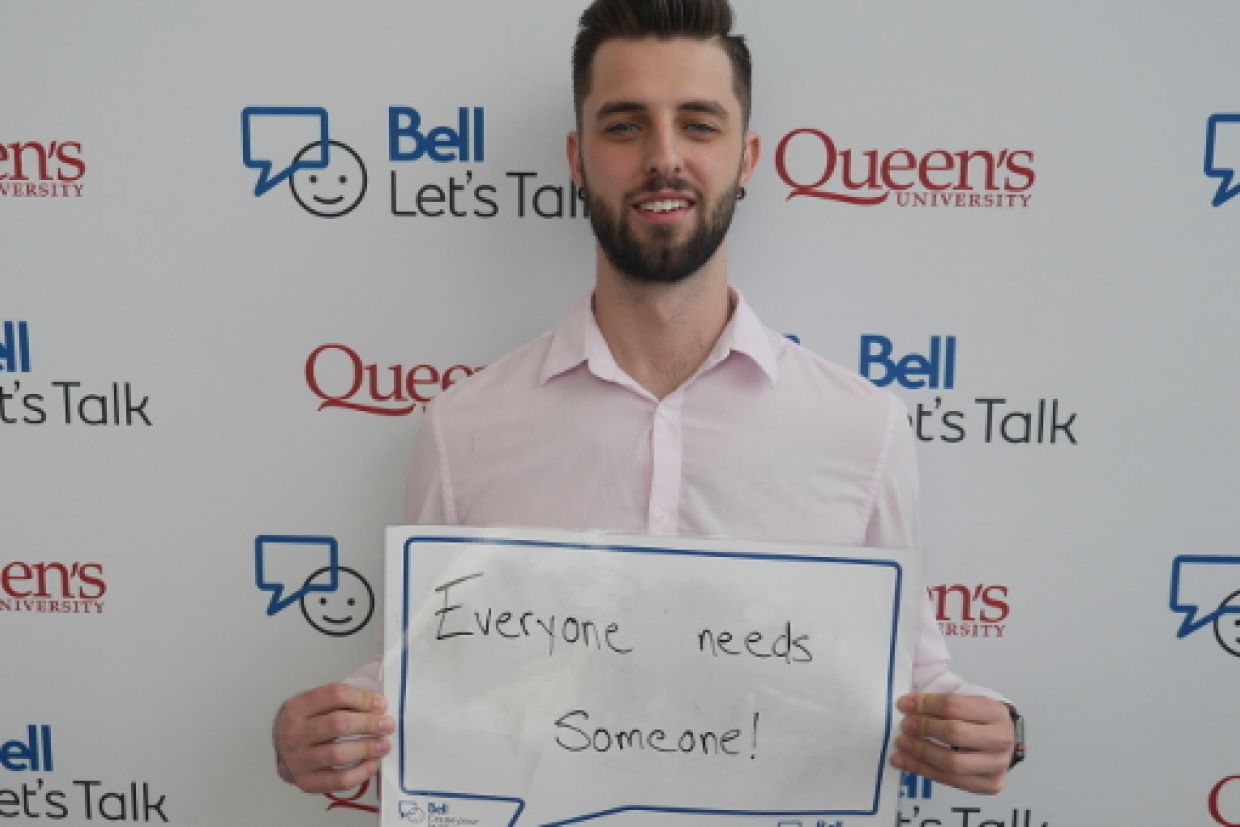Tom Ellison, PHE’18, hit a low point during his second year at Queen’s. He was a varsity volleyball player, but had been struggling for years with depression and feelings of worthlessness.
One night he attempted to take his own life. He looks back at that moment and knows he should have reached out for help instead of keeping it a secret.
“I decided that night that no one had to know (about my suicide attempt),” says Mr. Ellison, who is now an assistant coach on Queen’s volleyball team. “I felt like I had to be a man and deal with it myself. There is a stigma that you have to tough it out.”
Mr. Ellison was one of four panellists who shared his story during last week’s Let’s Talk Mental Health event in Mitchell Hall. It was an open discussion featuring about 60 students and moderated by Professor Heather Stuart, the Bell Canada Mental Health and Anti-Stigma Research Chair, a position funded by donor support. Many students shared their struggles and successes in the open forum. They talked about the challenges of seeking help. Staff members were on hand to let people know about resources available to find help on campus.
Dr. Stuart, one of the first researchers to study the impacts of stigma on mental health, told the crowd that stigma prevents many people from seeking help. Talking openly about mental health is necessary to get better. “We need to unlearn secrecy and talk openly,” Dr. Stuart told the crowd. “Don’t pretend to be okay when you are not okay.”
Through her research, Dr. Stuart developed five tips for reducing mental health stigma. Those tips (language matters, educate yourself, be kind, talk about it, and listen and ask) are prominently featured in the Bell Let’s Talk national campaign.
Last year, during another low point, Mr. Ellison finally found the courage to text a friend. Three words changed Mr. Ellison’s life were “I need help.” That message spurred his family and friends into action, and Mr. Ellison received the assistance he needed. He still has symptoms today, but now has a support system and resources to help him navigate through difficult times.
His advice to others is to speak up and ask for help because you will be surprised how supportive others can be.
“I buried (my mental health problems) for five years and did not talk about it,” he says. “As soon as I opened up, I realized the stigma was a lot more in my head than I thought it was. A lot of the stigma comes from the illness itself and not the world around you.”
Last week’s Let’s Talk Mental Health event was one of several activities organized at Queen’s to support Bell Let’s Day on Jan. 30.



